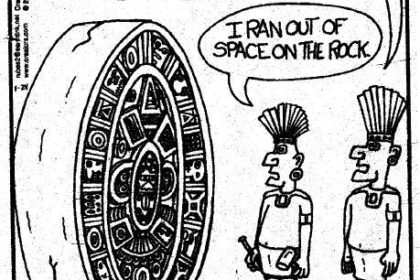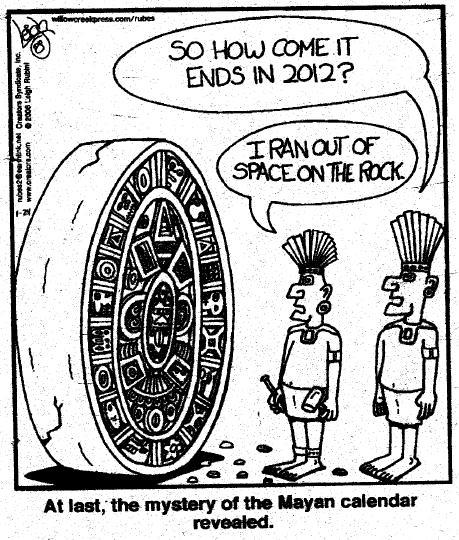
In honor of the forthcoming end of the world, I wanted to spend a few minutes to share with you some perspective on the state of SEO. Yes, I know, SEO’Brien actually still spends time on search engine optimization. Truth be told, my old library analogy still stands the test of time as one of the simplest ways to explain SEO to entrepreneurs, small business owners, and even marketers who can’t make the leap to think of SEO as anything but content and keywords. Bottom line, SEO is NOT about keyword and content optimization, not entirely at least – heck, not remotely. It starts with good site architecture, design, and a marketing strategy and organization that understands the implications of a search engine.
But that’s not the point of today. Today, we want to talk about how you rank and what it means.
Article Highlights
Rank is Dead, Long Live Rank
For years now, marketers have known that where you rank in search results was a nearly irrelevant metric. An interesting anecdote at best, how a keyword ranks is a bare snapshot of one slice of how your website performs and how Google interprets the significance of the site. Many marketers avoid like the plague, business owners who say they want (need) to rank in the first few results on the following keywords…
Why? Google and other engines, long ago, started personalizing results.
What does that mean? The search results you see are different than those your friend sees. Results are now personalized by what you’ve previously searched, on what you clicked, what you do with social networks such as Google Plus, and where you live. The results are so personalized that even if you rank first, according to the services that report how a site ranks, the majority of your traffic may come from a location where you rank poorly. Reports may indicate that you rank prominently but how / where Google determines you rank in New York, where you get most of your business, may be entirely different.
Not long ago, Google made a change in their own transparency and you might have noticed that in Google Analytics, the most significant source of traffic is from the keyword (not provided) – that’s not a typo… I mean it, not provided. Google isn’t exactly hiding such information from you; it’s trying to help establish the fact that the way businesses and (unfortunately) some marketers have been trying to optimize sites has been wrong. Simply put, trying to optimize for a specific term, or set of terms, forces you to do so at the expense of everything else Google might consider important and relevant AND it directs your attention from what really matters – good design, architecture, and content about your business.
Raven Tools Abandons Rank Reporting
In January 2013, Raven Tools, my long time favorite search reporting tool (and a tool I advocated only days ago), will drop rank reporting entirely. I have to admit, at first I was dismayed and frustrated, as were countless other marketing professionals, but then I realized how significantly the change (pressured upon web services such as Raven) liberates us to focus on what matters.
Years ago, I stopped reporting rank, as a snapshot, to the startups with which I work. Appreciating the evolution through which search was going, I still used rank reporting but never allowed my clients to evaluate anything based on their position for a specific term.
Tracking What Matters
How can rank be so meaningless?? In and of itself, it is a worthless barometer and it’s exactly that reason that I relish the progressive death of it. And yet, it’s loss also troubles me. I’ve long said that you should NEVER hire an agency that does SEO. Search engine optimization is too integral to all of your other marketing activities AND the engineering of your web site. And while many still try to focus only on SEO, at the very least, appreciate that keyword data from organic search can so significantly impact and be impacted by Search Engine Marketing that for the love of God, at the very least, treat SEARCH as one program (run by the same people who run and reported with your Adwords performance).
What matters is not where a term ranks but considerations such as the relative volume of opportunity on keywords, the change in search volume on those terms, how your business is perceived related to terms, and what your business can do about that. Such strategic direction is impossible if you don’t track search in aggregate; and not treat organic keyword rank as distinct from Adwords volumes and performance.
More than volumes, we want to optimize for what performs and that means a solid understanding of Google Analytics: Segmentation, Goal Tracking, Event Tracking, Multi-Channel Funnels, and cohort analysis (things I’ll get into at another time). Knowing the impact keywords have on your business, not as search terms but as leading indicators of your business, can have a profound affect and really establish the role of the person you’ve hired to help you – we’re MARKETERS not advertisers and our job is to intimately understand your business, channels, the industry, and the market opportunities. Search, studied properly and attributed appropriately is far more valuable in that context than in trying to get you a bit more traffic or a few more leads.
So rank is worthless? Not at all. I’m excited by the potential these changes in the industry have on forcing business owners to value rank for what it is. What I’m troubled by is the fact that the CHANGE in rank over time was, and remains, a valuable indicator of the success of the business. While the snapshot is worthless, monitoring a change in how a site ranks is a valuable indicator of the health and success of the business. Sure, SEO is a factor in determining your rank (and affecting that change) but for a business in which the site is effectively optimized, the change in rank is an indication of the health and quality of the business, impact of PR, and a sign of competitive threats. What’s to come of our ability to track rank at a macro level? Over time??
SEO Tools That Matter
With the demise of Raven, I’m forced to find alternatives and it’s in my search for alternatives that I’ve uncovered some incredible platforms. Shame on me of all people; as an entrepreneur myself, I’m the first to advocate dropping old software in favor of new technology and services many have yet to discover. Having been a fan of Raven’s tool for years, I never bothered to look to the innovators in the market; now that Raven has decided to focus on paid search, my hand is forced.
“It is important to Raven and many of our clients that we continue to provide SEO, PPC, social media tools, content and analytics. We will lose access to the AdWords API if we continue to provide Google rankings after Jan. 2, 2013…. However, this decision aligns Raven software with the direction its co-founders have long believed the Internet marketing industry was going – away from individual ranking results as the most important metric and towards campaign performance metrics including traffic, conversions and goals. We will continue to innovate other ways for SEOs to measure the success of their campaigns.”
Simply put, Raven is going to focus on Adwords data, social media tools, and content analytics. Cool. But I have rich data sets for that. Too bad, their co-founders have the right idea.
Raven recommends AuthorityLabs and Advanced Web Rankings but it’s in my own back yard that I’m most intrigued. I’ll give them a look but I’ve recently had the pleasure of discovering Whoosh Traffic and I’m looking forward to spending some time with the team.  Their focus remains on SEO and as such, rank; hopefully, in the context that even the team at Raven is headed – helping businesses track organic search and it’s impact on business based on volume and goals.
Their focus remains on SEO and as such, rank; hopefully, in the context that even the team at Raven is headed – helping businesses track organic search and it’s impact on business based on volume and goals.
Like it or not, it is the end of rank as we know it and frankly, it should be. I have NEVER met a startup, or business, that was successful by valuing rank alone. Sure, you’ll find businesses that grow, startups that excel in organic search, and companies that continue to expand through SEO, but relatively speaking, compared to all of your competitors, focusing on search along, and looking to Marketing alone to do it, will fail you.
It’s the end of rank as we know it, and I feel fine.



Page rank is must to get your websites on top of SERPs. There are many tools and techniques like SEO, SEM and SMO by which back links can be generated on high websites which is useful to increase your website Page Rank also. If your websites doesn’t any page rank then it will not get visitors also so PR is must for the website to get traffic on it.
In SEO Every tools has his own value and with help of tools work can be done easily same Raven tool is more use full for ranking, this tool is easy to use and free so it is good tool for SEO Users.